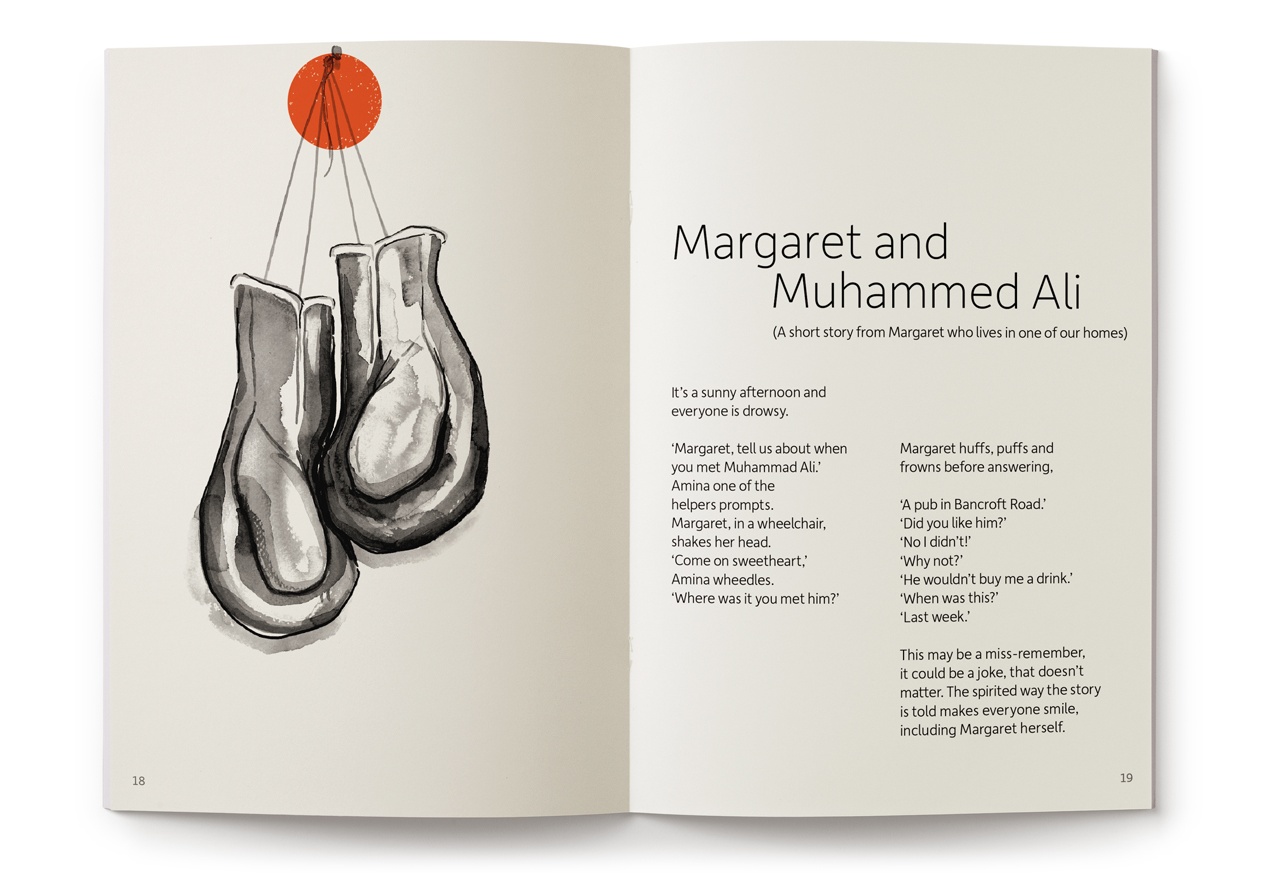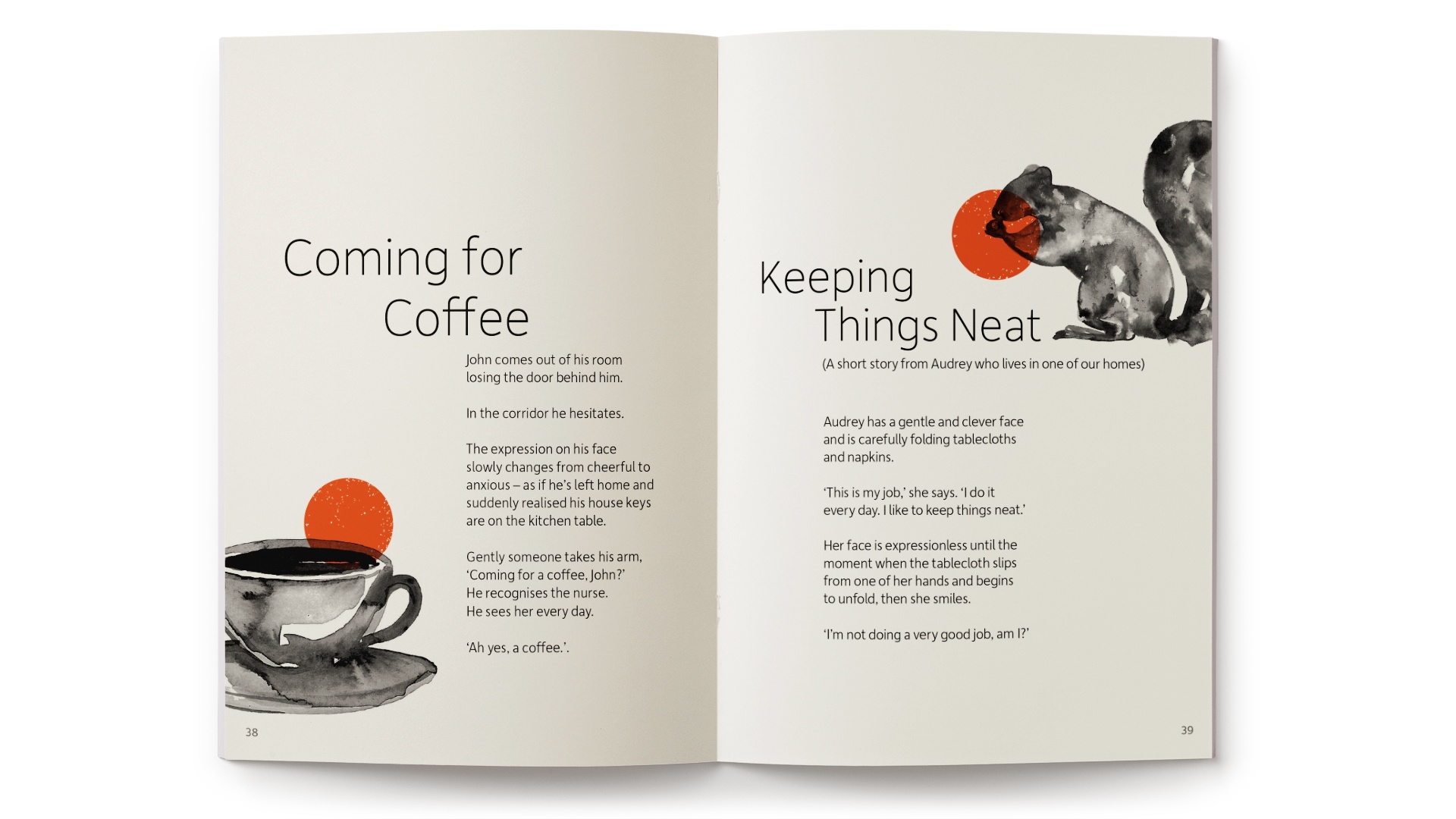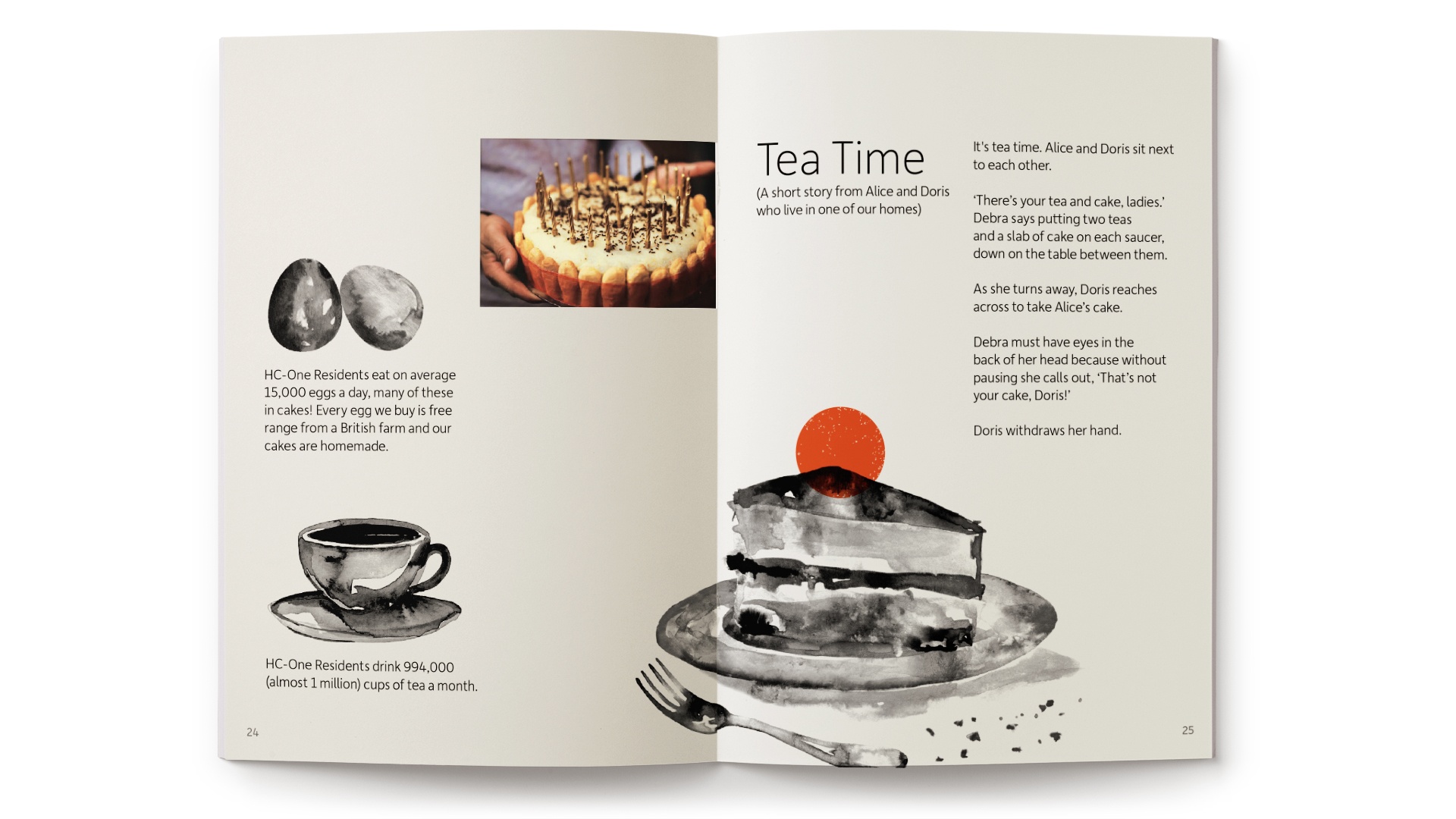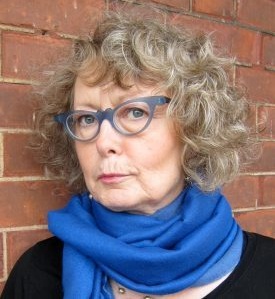
Talking storytelling with V.G Lee
At the beginning of the project we identified a ‘show don’t tell’ strategy for HC One with storytelling a key component. We had someone in mind to tell the stories and we were thrilled when she agreed to be part of the project.
VG Lee is an award winning author whose books have ensured her a secure and ever-expanding fan base. Since discovering a knack for writing in her 40s, VG Lee has been creating hilarious, critically acclaimed novels and short stories. We knew that her beautiful crafted sensitivity and trademark sense of humour would be a perfect match for capturing authentic life in the home, and kindness in action.
We caught up with VG to ask about how she approached the project.
How did you approach the project…?
…initially from a personal perspective, as if I would be staying in the residential care home rather than checking it out for a loved one. Beforehand, Sarah discussed the project with me: she wanted absolute honesty – not just my thoughts on the facilities, décor etc although these are important – but the atmosphere of each home: was it positive, caring, happy?
As a writer, I’m naturally observant and I hope empathetic. Also, I believe that being elderly myself – in fact not too dissimilar in age to many of the residents – worked in my favour and people found it easy to confide in me on quite a deep and emotional level.
At each home I was fortunate enough to be able to spend some time on my own to observe, make notes and talk informally to residents, members of family and staff.

The role of storytelling…
A short story, even just a few lines, can say so much about how a person feels, what mattered to them. It is far more than just words, it conveys someone’s history, their emotions – a short story brings the subject to life. This was so important for the project. We wanted the residents, the vulnerable, to be seen as human beings with a history as good and as great as our own.
Having spent time with my own mother during the last years of her life, I know that many older people miss someone showing a genuine interest in them and their memories. With gentle prompts and really listening to the answers – often within a few sometimes fractured sentences – a meaningful anecdote emerged. Someone had loved to sing in pubs, another had been a seamstress and yet another built his own house.
Then then there were the stories from close relations; daughters, husbands, wives, stories from staff members. Several of the vignettes moved me to tears, making me aware of my own mortality while others were funny and told with great affection.
Tone of voice and words and language
While putting together both the short stories and my feedback regarding HC One I frequently referred myself back to how I’d felt listening and observing because I didn’t want to write analytically. Cold clinical language may give all the facts that are required to keep someone healthy but they bypass the emotional story of what we need to maintain confidence and happiness. This has to be spelt out in warm, familiar language that we not only understand in our heads, but forgive me for sounding sentimental, that we feel in our hearts.
I, you, they – are turning their back on all that is familiar and safe when entering a care home, there has to be hope that they will receive affection and kindness – someone to listen to their stories.


VG Lee can be found on http://www.vglee.co.uk